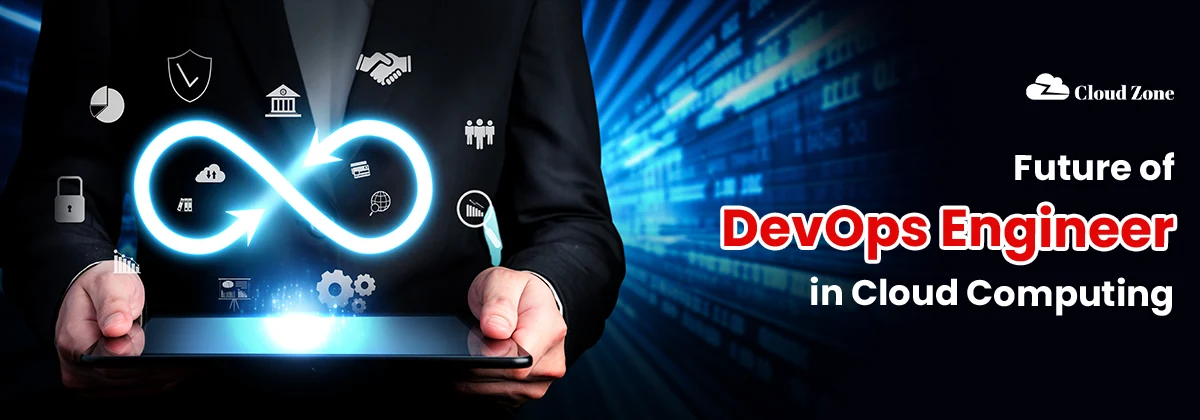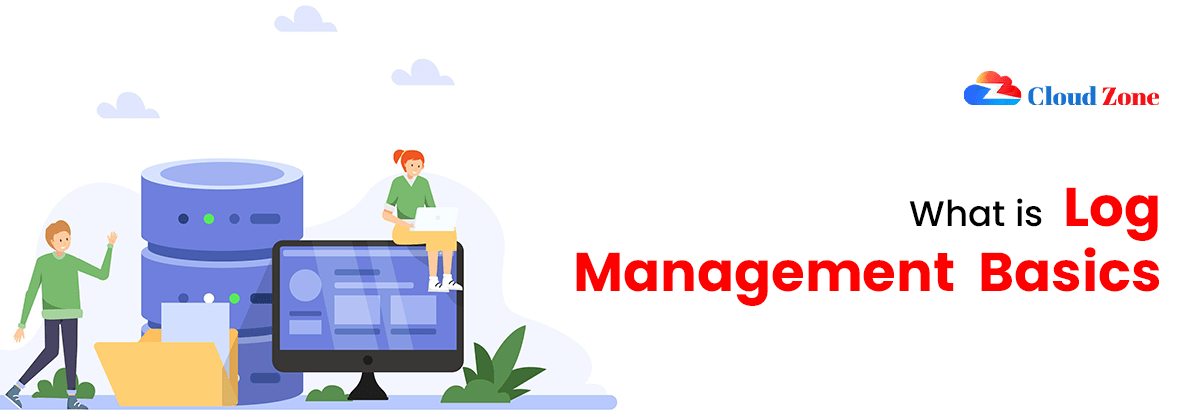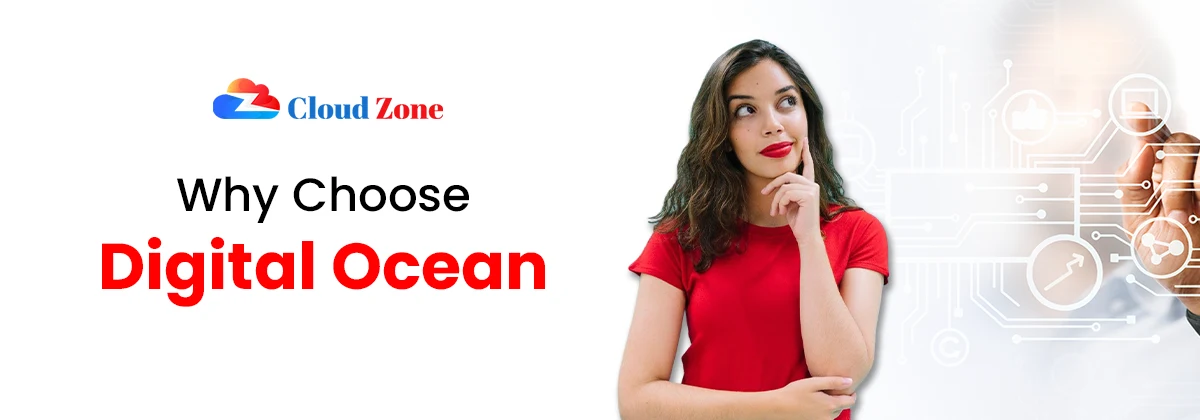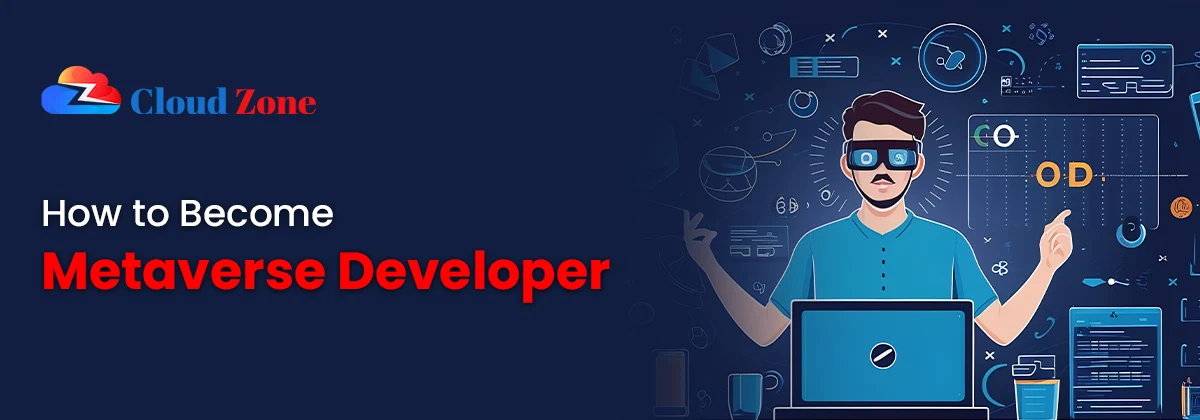Table of Contents
ToggleHave you ever wondered what will the DevOps engineer do in the cloud computing future? What is DevOps Engineer? Future of DevOps Engineer in Cloud Computing. Employment is already at a high demand now, but more change is on the way within the next decade. With companies fully switching to cloud-native environments, the future of DevOps engineers in cloud computing is clearer and more complicated than ever before. This guide investigates all the developing duties, the contemporary issues, and the emerging opportunities.
By the end of this article, you will clearly see how the role of a DevOps engineer is changing in cloud computing, the skills that will be most sought after, and practical advice on how to future-proof your career in this fast-changing environment. You can also obtain relevant tactics to remain on top of new trends and become an inseparable component of the cloud-native future.
What is DevOps Engineer?
To see where we are going, we should come back to the fundamentals. So, what is DevOps Engineer? In simple words, a DevOps engineer plays the role of filling the gap between development and operations. They are automated, seamlessly deployed, and continuously integrated. But the role is expanding.
Clouds demand engineers to operate pipelines, but also to design resilient, cost-efficient, and global-scale systems. Their effort is essential in accelerating the delivery of software and making products better. DevOps engineers assist organizations in minimizing downtime and ensuring they become more responsive to market needs. They are the foundation of business success in an era when digital transformation is the key to business success.
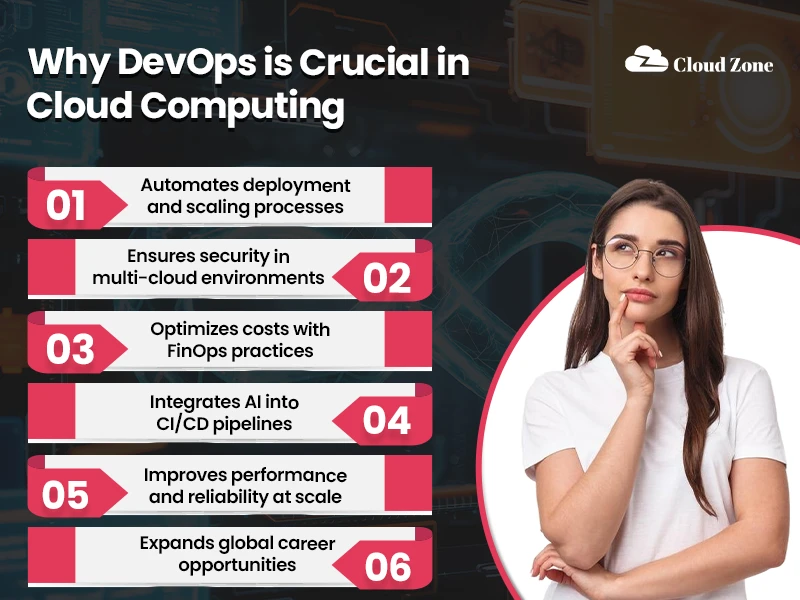
What is a DevOps Engineer in Cloud-First Enterprises?
In a modern enterprise, what is a DevOps Engineer if not the backbone of cloud adoption? They assist companies to move away from monolithic applications to micro-services and containerized workloads, and serverless.
By 2030, such professionals will not only roll out applications, but will create smart, self-healing systems with the ability to scale dynamically in response to AI-based analytics.
Their experience will play a critical role in realizing safety, control, and 247 access to advanced cloud systems. DevOps engineers will enable faster innovation cycles, reduce the cost of operation, and enable companies to respond to new market needs within a short time. To put it briefly, they will become the engines of digital transformation and sustainable development.
What is Their Role in Cloud Security?
The number one issue with cloud Kubernetes adoption is security. DevOps Engineer what is their responsibility here? Not only about fast releases but also about safe ones.
Future engineers will:
- Integrate security tools into the pipes of CI/CD.
- Automate checks in multi-clouds.
- Identify anomalies using AI before getting breaches.
- Introduction of continual monitoring to detect vulnerability in real-time.
- Provide secure cloud infrastructure configuration and hardening.
- Automated threat modeling and risk analysis during the lifecycle of development.
Such a combination of DevOps and security is referred to as DevSecOps and will take the reins in the next few years.
What does DevOps Engineer Do in AI-Driven Clouds?
As artificial intelligence reshapes infrastructure, what is DevOps Engineer do that makes them indispensable? They will be used not only to handle code pipelines but also machine learning workflows.
Future tasks will include:
- Automation of the deployment of AI models.
- ML lifecycle monitoring in production.
- Predictive analytics of the reliability of the system.
- Incorporating the smarts of AI into pipelines of CI/CD.
- Providing AI ethical behavior and compliance in the production systems.
- Resource optimization on AI loads in multi-clouds.
- Working with data scientists to automate feature additions and model retraining.
- With this change, DevOps engineers become key actors in AI-based businesses.
What is DevOps Engineering Beyond Automation?
The role has been viewed as a way of automating deployments over the years. But what is DevOps Engineering today? It is becoming a field that includes resilience engineering, cloud cost engineering, and sustainability. DevOps engineers are also likely to be strategically minded and balance performance, cost, and environmental impact as
enterprises are distributed worldwide. Their role is now much broader than pipelines-they are the designers of stable, efficient, and sustainable cloud architectures.
New responsibilities include:
- Resilience Design: Develop a cloud architecture that endures failures.
- FinOps Collaboration: Cloud cost management by automation.
- Green Cloud Practices: Workloads optimization toward energy efficiency.
- Performance Optimization: Ongoing system tuning of speed/scalability.
- Disaster Recovery Planning: Development of automated failover and backup plans.
- Cloud Governance: Compliance, access control, and audit preparedness policies.
- Observability & Analytics: Utilizing metrics and logs to get ahead of failures.
- Continuous Improvement Initiatives: Repeating the process and eradicating the waste to achieve consistency.
Key Future Trends Shaping DevOps Engineers
The future of DevOps engineer in cloud computing is probably going to be:
- Multi-Cloud Mastery – The engineers will work with AWS, Azure, GCP, and private clouds at the same time.
- Serverless Expansion – Serverless deployment will become very popular, and the infrastructure will be less complicated.
- Integration of AI and ML – DevOps teams will implement AI to automate monitoring, incident response, and scaling.
- Edge Computing – Applications will be located nearer to users and will need engineers to operate distributed systems at scale.
- Low-Code/No-Code Collaboration – Non-engineers can build apps safely as tools will be integrated by DevOps.
- Automated Governance – The implementation of compliance and security policies by code in every environment.
- Self-Healing Infrastructure – Developing systems that can diagnose and automatically repair faults without interruption.
- Sustainability Focus – Engineering cloud solutions with low energy and carbon footprint.
- Cross-Functional Collaboration – Working side by side with the AI teams, data scientists, and business units to ensure that technology is aligned with the strategy.
Skills Future DevOps Engineers Must Develop
- Cloud-Native Development Containers, Kubernetes, serverless frameworks
- Infrastructure as Code (IaC) – Terraform, Pulumi, or AWS CDK.
- AI Literacy – Knowledge of deployment and monitoring of ML workloads.
- Cybersecurity Awareness- Continued risk scanning and remediation.
- Collaboration and Communication-Linking data scientists, operations, and developers.
- Observability Skills – Expertise in monitoring, recording, and tracking tools to proactively identify issues.
- FinOps Knowledge – Optimizing the use of cloud resources at low costs, using automation and intelligent resource allocation.
- Edge computer skills – Implementing and operating workloads nearer to end-users with low latencies.
Gain real-world DevOps experience & certifications for global careers.
Challenges Ahead
As opportunities continue growing, the future of DevOps engineer in cloud computing is not without challenges. The Rapid Tool Evolution means that practitioners must keep evolving into new platforms and new structures, often in a way that can seem overwhelming. The issue of Talent Gap also persists, and businesses are finding it difficult to acquire talented and experienced engineers to work in multi-cloud settings. Security Pressures are mounting as cyberattacks become more advanced within highly connected systems. There is also an issue of Cultural Barriers, because many of the existing businesses are not willing to embrace agile and DevOps practices. These are not the only challenges that engineers have to face, as there is also the problem of increasing compliance requirements, the need to consider how best to introduce AI into workflows, and the need to strike a balance between speed and sustainability in cloud operations.
Opportunities for Growth
Despite challenges, the path is full of promise:
- Specialization– Cloud security engineers, AI-DevOps engineers, and FinOps-DevOps engineers will appear.
- Leadership Roles – A lot of them will become Cloud Architects and CTOs.
- Global Demand – Remote-first work will provide global opportunities.
- Innovation Drivers – DevOps engineers will spearhead automation, AI adoption, and cloud-native innovation.
- Sustainability Advocates – Engineers will have a significant role in making cloud systems greener and more energy-saving.
- Constant education – Lifelong learning of new tools, languages, and platforms will be a professional benefit.

Conclusion
The future of DevOps engineer in cloud computing goes far beyond automation. They will become the generation that realizes that digital ecosystems are secure, AI is correctly implemented in business, and can create stable and scalable infrastructures. No longer confined to pipeline operations, these workers will define strategy, foster innovation, and become the infrastructure of enterprise change in the cloud era.
If you’re aspiring to become one, begin now. Automate masterfully, master cloud, and embrace AI.
Companies all over the world require the new wave of DevOps gurus. Do not allow yourself a moment to be at the forefront of the change.
Go the extra mile and join our advanced training programs on DevOps and develop a future-proof cloud computing career
Learn to integrate Dev & Ops with AI-powered tools.
FAQs
DevOps Engineer What is their future in cloud-native startups?
They will probably spearhead automation, observability, and scaling plans on day one.
What does a DevOps Engineer do in hybrid environments?
They provide uniformity between on-premises systems and various clouds.
What is a DevOps Engineer’s role in AI-driven enterprises?
They incorporate machine learning models and CI/CD pipelines and maintain stable ML operations (MLOps).
What is a DevOps Engineer’s contribution to sustainability?
They design buildings with green building designs and implement green building in their cloud to create a low-carbon impact.
What is a DevOps Engineer’s importance in global teams?
They allow free interaction among distributed workforces through standardization of tools, processes, and automation.

Sukhamrit Kaur
Sukhamrit Kaur is an SEO writer who loves simplifying complex topics. She has helped companies like Data World, DataCamp, and Rask AI create engaging and informative content for their audiences. You can connect with her on LinkedIn.
